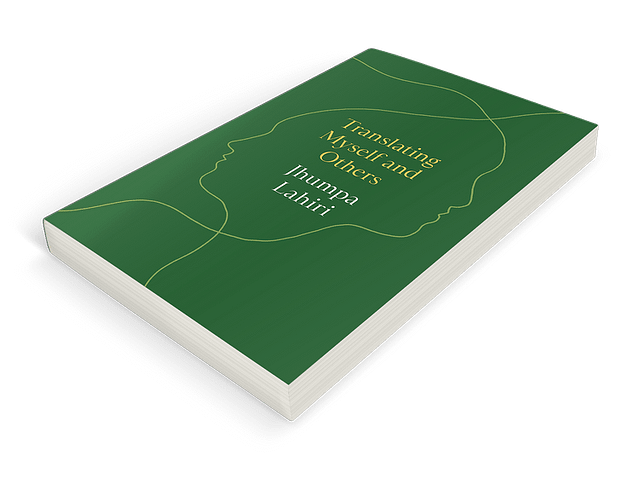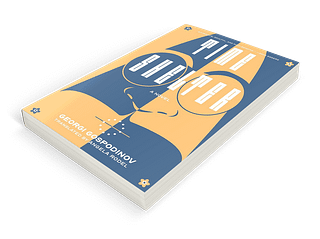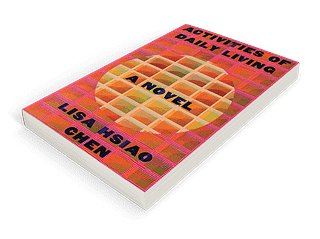Book Review Online
Two Sides of the Same Coin
On Jhumpa Lahiri’s essays, Translating Myself and Others.
By Julia Sanches

Translating Myself and Others
Jhumpa Lahiri
Princeton University Press, $21.95
There is a slew of metaphors about translators, translating, and translations. The translator as magician, conduit, performer; translating as mutating, alchemizing, regenerating; the translation as a betrayal, a hall of mirrors, a piece of a whole. Perhaps this glut is a consequence of the fact that these three terms are tautologically self-defining. What does a translator do? She translates. What is the product of her translating? A translation. Of course, this applies to other vocations too. The gardener can be said to garden a garden. But most of us have a sense of what a garden is, at least in our own hemispheres. And even though I might get the specifics wrong, up here in New England, I can visualize a space that is muted in winter, blossoms in the spring and grows green in the summer, where someone, perhaps a gardener, prunes the hedges, rakes the leaves, and waters the rosebushes.
Or perhaps the issue is that the term translation is so capacious and mutable that it easily conforms to whatever the person wielding it wishes to say. And in Translating Myself and Others, her newest collection of essays on translation, Jhumpa Lahiri wishes to say a great deal.
Lahiri, whose reputation preceded her into the field of literary translation, was born in London to Indian parents, and grew up in Kingston, Rhode Island; since then she has lived in many other cities, most notably Rome. One of her earliest memories, she would like us to know, involves a translation dilemma. As a child, in a kindergarten classroom, Lahiri was encouraged to write a note that said, “Dear Mom, Happy Mother’s Day” for the occasion, but felt embarrassed “to insert the Bengali term [Ma] I used and knew her by,” fearing that her mother wouldn’t see herself in the word “mom,” and that it might even offend her. This embarrassed kindergartener, both afraid to be different and afraid to offend, is one of the main presences that haunts this collection.
The other is a celebrity.
A close friend of mine jokingly refers to well-known literary translators as “jazz famous.” Jhumpa Lahiri is not jazz famous. Jhumpa Lahiri has won a Pulitzer and been shortlisted for the Man Booker. She is a Guggenheim fellow and an Ivy League professor. Jhumpa Lahiri was a celebrity author years before she became a celebrity translator. And celebrity translators are different. Unlike their jazz-famous counterparts, their names are given prominence. They are featured without question on the covers of books; sometimes their pictures are even published in reviews in The New York Times alongside photographs of their authors. In a world where invisibility is a talking point, their hypervisibility is a selling point. The publisher’s copy for Ties by Domenico Starnone, Lahiri’s first book-length translation into English, opens with the line: “Luminously translated by Pulitzer Prize–winning author Jhumpa Lahiri.”
Celebrity and kindergartener. Celebrity and translator. These are the undercurrents within Translating Myself and Others. In the introduction, Lahiri explains: “I have included, here, a set of essays I think of as a casual dinner party comprised of a handful of authors I’ve been thinking about recently, seated together at a table with translation serving as a centerpiece.” If each essay is a guest, then seated around the table you’d find Lahiri alone with a bevy of male writers, all but one deceased. And what exactly does it mean to have translation as the centerpiece? Will it serve as the grounding wire of robust conversation, or a shiny ornament that serves to beautify a social engagement, something for the dinner guests to make small talk about when there’s an awkward pause?
As a book of personal essays, Translating Myself and Others is less about translating or others than it is about the ways in which translation refracts Lahiri’s multiple selves: author, translator, academic, and language learner. Each of these selves is mature to a different degree. Translator and language learner have the feel of students on their year abroad, of a lover who believes their new flame is incapable of fault. The essay, “Why Italian?”, written in Italian and delivered as a speech before being translated by Molly L. O’Brien “in collaboration with the author” (Lahiri helicopters over her translators), is especially green. Here, Lahiri the language learner, reminiscent of Lahiri the embarrassed kindergartener, takes the defensive in her attempt to formulate an answer to a question she is asked repeatedly in Italy: Why do you speak our language? “I write in Italian to feel free,” she sappily concludes.
“Lingua/Language,” another Italian piece in English translation, this time by the author, displays a similar defensiveness. Buttressing herself with an Italian thesaurus from 1830 written by Niccolò Tommaseo, Lahiri draws a minor distinction between the words lingua and lingue (otherwise translated as “language” and “languages” in this collection), for the sake of arguing that every lingua is in fact rooted in lingue. She does this in other parole, of course: “Lingua is born and comes to flower only thanks to the sap that lingue provides.” In translation: Language is born and comes to flower only thanks to the sap that languages provide. Put another way: no language is created ex nihilo. Tell us something we don’t know, Jhumpa, but do it in Italian. As Lahiri continues to run down the list of words in her thesaurus nested under the heading of lingua, she sees the term “tradurre (translate)” and is moved by Tommaseo’s citation about it. Which leads her to make another obvious remark, this time on the subject of translation or translators: “Tommaseo’s subtle reflection,” she writes, “reveals the orientation, inclination, and spirit of a translator: a person who never deals with only one lingua.” In translation: a translator is a person who never deals with only one language. When Lahiri chooses not to translate, she is doing something: she is distracting us with the shiny centerpiece so that we won’t realize the custard has curdled.
I’ve mentioned Lahiri’s multiple selves, refracted by the collection’s centerpiece: translation. Lahiri the translator and language learner are novices compared to the expert, much-lauded persona of Lahiri the author and academic. It is Lahiri the academic, who has settled into herself, that I find most compelling. Lahiri the academic, when she directs her gaze outward.
The essay, “In Praise of Echo,” grew out of the literary translation workshops the author taught at Princeton and is an elegant reframing of translation through the myth of Narcissus and Echo. In the myth, Echo, a mountain nymph, is condemned by Juno to “say only a portion of what other people have said,” her once talkative nature reduced to an echo. Lahiri posits Echo as the translator and Narcissus as the author; Echo follows, Narcissus originates. But nothing is so simple, and at the end of the myth, “for an instant it is Narcissus who is in pursuit and Echo who flees him.” Author and translator, Lahiri argues, original and derivative, are just two sides of the same coin. The other gem in this collection, another piece in which Lahiri the academic takes the stage, is “(Extra)ordinary translation,” about the notebooks and letters of Antonio Gramsci. In Gramsci, a multilingual author and political thinker who lived between languages and possessed multiple selves, Lahiri finds a peer, as well as an “icon of translation.” The key to her reading of Gramsci begins with a mistranslation, when she discovers that traduzione not only means translation, but is also “a bureaucratic term which refers to the transportation of individuals who are under suspicion or detained.” The discovery of this alternate meaning leads Lahiri “to think of both prisoners and language in transit, on the same ontological spectrum.” Translation is both key to reading Gramsci’s life and key to how he moved through the world. What Lahiri wants us to know is that the same applies to her.
There is great fear among translators of making mistakes, let alone fessing up to them. As an author with the authority to blunder, the vulnerability that Lahiri demonstrates in “Where I Find Myself,” her essay about self-translation, is a breath of fresh air. After reaching the belabored decision to translate her second Italian-language book, Dove mi trovo, into English as Whereabouts, Lahiri realizes she has become so detached from the original text that she misreads her own words and mistranslates them into English. “For, though I’d already written the book,” she writes, “I felt the way my own immigrant parents felt as they were raising me: the author of an inherently foreign creature, both recognizable and unrecognizable, born from my flesh and blood.” In this essay, Lahiri, from her privileged position as author and translator, continues to gamely explore the idea that originals are not so immutable as they seem. Author and translator are both Echo and Narcissus, pursuer and pursued.
Like a work of translation, the essays in this collection have had previous lives as keynotes, introductions, afterwords, and Italian-language pieces for Italian-language media. Two essays in Italian bookend the collection, followed by a selected bibliography and a list of further readings whose authors and perspectives on translation receive almost no mention in the entire book. The volume’s lack of dialog with other thinkers on translation calls to mind a criticism levied by Tessa Hadley against Lahiri’s first Italian-language book published in English (in a translation by Ann Goldstein), In Other Words: “all [Lahiri’s] contemplation is turned inwards.” Throughout these essays, it’s as if Lahiri, feeling misunderstood, were hoping to build a literary home for herself that is ample enough to accommodate her lives as author, translator, academic, and language learner. A home in which she can write, on her own terms, in whatever language she wants, and think, on her own terms, about whatever subject she wants. Preferably without pesky questions or objections.
Julia Sanches translates literature from Spanish, Portuguese, and Catalan into English. Born in Brazil, she lives in Providence, Rhode Island.


